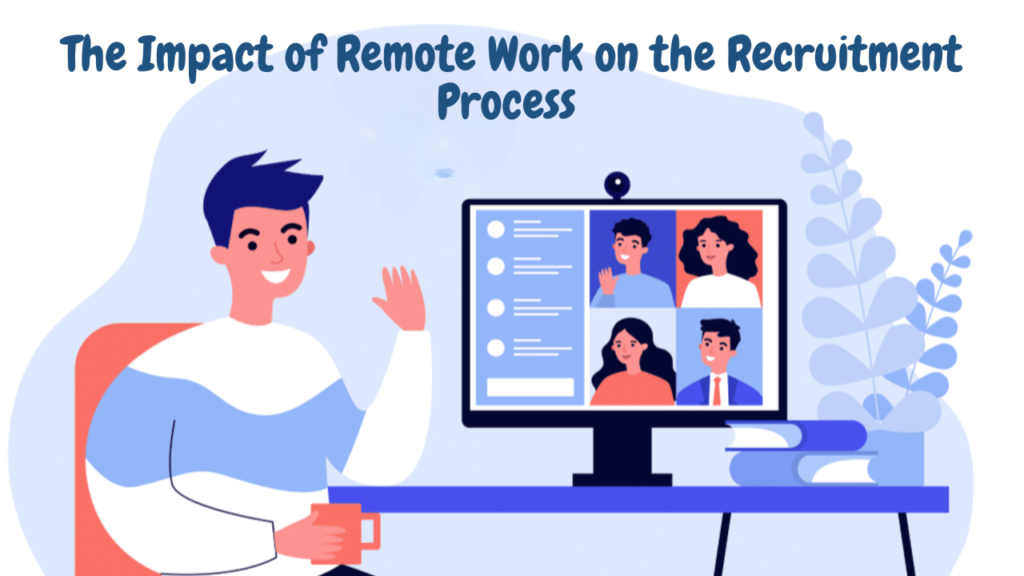Executive search is evolving rapidly, driven by technological advancements, changing workplace norms, and the growing need for diverse leadership. As we enter 2025, companies must stay ahead of emerging trends to attract and retain top executive talent. This blog explores the key trends reshaping executive search and offers insights into how organizations can adapt to thrive in a competitive hiring landscape.

What Is Executive Search, and Why Does It Matter?
Executive search involves identifying, assessing, and recruiting senior leaders who can drive organizational success. Unlike standard recruitment, it focuses on filling high-impact roles such as CEOs, CFOs, and other top executives. In 2025, the stakes are higher than ever as businesses compete to secure visionary leaders in an increasingly global and digital world.
Emerging Trends in Executive Search
1. Artificial Intelligence in Recruitment

AI tools are revolutionizing the executive search process by automating resume screening, identifying passive candidates, and predicting cultural fit. Algorithms can analyze large datasets to pinpoint candidates with the right qualifications and leadership potential, saving time and enhancing accuracy.
2. Diversity, Equity, and Inclusion (DEI)

Organizations are prioritizing DEI in their hiring strategies, recognizing that diverse leadership teams foster innovation and better decision-making. Executive search firms are focusing on finding candidates from underrepresented backgrounds to meet these growing demands.
3. Remote Work’s Impact on Talent Acquisition

The rise of remote work has expanded the talent pool globally. Companies can now recruit executives from different geographic locations, enabling them to find the best talent regardless of physical proximity. This trend also emphasizes the need for leaders who can manage remote teams effectively.
4. Focus on Employer Branding

In a competitive market, companies must build a strong employer brand to attract top executives. This includes showcasing their values, culture, and growth opportunities through strategic marketing efforts on platforms like LinkedIn and Glassdoor.
5. Data-Driven Decision Making

Analytics tools are becoming essential in executive search. Companies are leveraging data to assess candidate performance, predict success in leadership roles, and optimize hiring decisions. These tools provide insights that go beyond traditional resumes and interviews.
6. Gig Economy Leadership

The gig economy is influencing executive search, with more companies hiring interim executives for specific projects or during transitional periods. This flexible approach allows organizations to address immediate needs without long-term commitments.
Challenges in Executive Search

Despite these advancements, challenges remain:
- Bias in AI Tools: Ensuring algorithms are free from biases that could affect candidate selection.
- Data Privacy Concerns: Protecting sensitive information during the recruitment process.
- Maintaining Culture in Remote Teams: Finding leaders who can sustain a strong organizational culture in virtual environments.
How Companies Can Stay Ahead

- Invest in Technology: Adopt AI-driven recruitment tools to enhance efficiency and precision.
- Promote DEI Initiatives: Partner with executive search firms that specialize in diverse hiring.
- Strengthen Employer Branding: Use social media and professional networks to highlight your company’s strengths.
- Leverage Data Analytics: Incorporate predictive analytics into your hiring process to make informed decisions.
- Embrace Flexibility: Be open to hiring interim or project-based executives to address short-term needs.
Conclusion :
As executive search evolves in 2025, staying ahead of trends is essential for businesses aiming to secure top leadership talent. By embracing AI, prioritizing DEI, and leveraging data-driven insights, companies can navigate the complexities of recruitment and build resilient leadership teams. The future of executive search is here, and it’s more dynamic and innovative than ever.
Here are some additional insights for “The Future of Executive Search: Trends to Watch in 2025”:
1. Future Predictions
Blockchain Technology: Blockchain is anticipated to enhance transparency and security in executive search by providing immutable records of candidate credentials and career histories, reducing the risk of fraud.
Augmented Reality (AR) in Interviews: AR could revolutionize virtual interviews by creating immersive environments where candidates can interact with potential workplaces, offering deeper insights into company culture and team dynamics.
2. Thought Leadership Perspectives
James Abruzzo, Managing Partner at JGA Partners: Emphasizes the shift from traditional relationship-based executive search to data-driven insights and niche expertise. He highlights the importance of search firms offering unique value propositions, such as deep industry knowledge and access to passive candidates, to stay competitive.
For a deeper dive into his perspective, read the full article: A Look at Executive Search in 2025.
Korn Ferry’s Talent Acquisition Trends: Korn Ferry identifies increased AI usage as a top trend for 2025, with 67% of survey respondents acknowledging its significance. They also stress the importance of companies adapting to these technological advancements to maintain a competitive edge in talent acquisition.
For the complete analysis, check out Korn Ferry’s report: Talent Acquisition Trends 2025.

